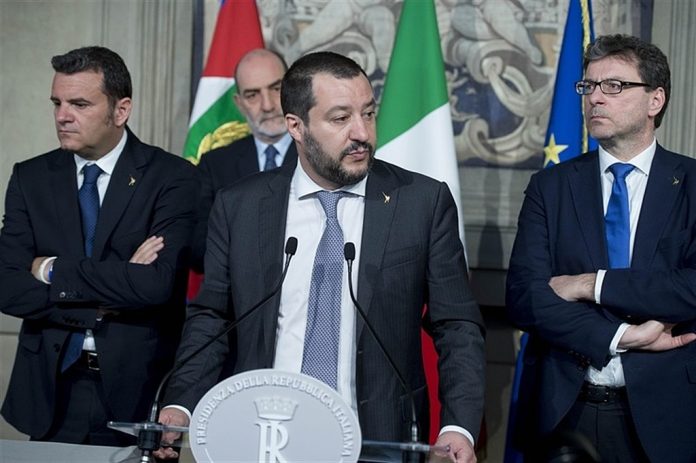It’s showdown. Italy re-submitted its draft 2019 budget to the European Commission – the same plan that was initially rejected by Brussels. The only concession offered by Rome in the revised plan is to sell more state assets and to pay off debt faster.
The Commission had sent back Italy’s draft 2019 budget in October because its growth assumptions were too high and the deficit was to be bigger rather than smaller and debt was to be stable instead of lower.
As reported by the Reuters news agency, Italy’s euro-sceptic government of the far-right League and populist Five Star movement dug in its heels on the main assumptions of the draft and, defying a call from all euro zone finance ministers last week, stuck to its initial plan.
Italy’s structural deficit, which excludes one off items like privatisation and business cycle swings and is key for the assessment of fiscal health, is still to rise 0.8% of GDP next year rather than fall 0.6% as required by EU rules.
“It’s quite pertinent that Italy actually complies with the rules,” Klaas Knot, European Central Bank policymaker, told CNBC television. “If it doesn’t, the result is that spread will go up.”
Italy has a public debt of 131% of GDP, the second highest in the EU after Greece, and other euro zone finance ministers are worried Italy could trigger a sovereign debt crisis like that one that nearly killed the euro some years ago.
The European Commission now has the option of starting disciplinary steps that could eventually end in fines for Italy, although this option has never been used so far.
Italy’s Deputy Prime Minister Matteo Salvini warned on November 14 the EU would make a mistake if it moved to sanctions. “They’ve got it wrong if they are even just thinking of imposing fines on the Italian people,” Salvini, who is also the leader of the League, told state-owned radio RAI.
In response to the controversy, the vice-president of the S&D Group, Mercedes Bresso, issued a statement criticising the Italian government for being “irresponsible”.
“It is thanks to our criticism against austerity, and the joint work of us, the Socialists and Democrats in the European Parliament and the European Commissioners belonging to our political family, that the elements of flexibility and solidarity have been established in the EU fiscal rulebook. These innovations – it should not be forgotten – have allowed Italy to spend €30 billion more,” he said.
“Creating additional deficit to implement policies that will do next to nothing to improve the economic and social prospects of the country, as is the case with the current Italian budget plan, will only deepen divides within the Eurozone. What is more is that with its most recent proposal of selling off state assets in profitable major companies, the Salvini-Di Maio government is in fact impoverishing the state and thereby Italian citizens as a whole.”

